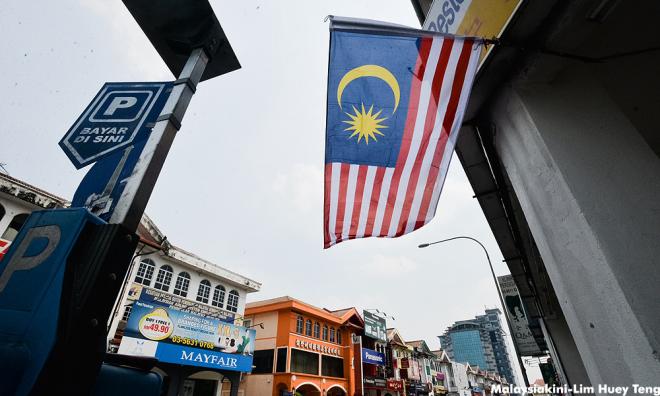
At a time when the country is facing a national health crisis, the federal government is crossing swords with the states over the issue of the conditional movement control order (MCO) .
Putrajaya has lifted some restrictions under the conditional MCO and expects all states to fall in line. But some states have refused to toe the line.
The dispute brings into focus federal-state relationship and throws up a crucial question: can the states do it their way on certain national matters of crucial importance and, thereby, effectively ignoring federal laws?
Many legal experts have cited the federal constitution to argue that the federal government is supreme and the states cannot challenge federal laws.
The division of power is clear-cut and, hence, in the case of the conditional MCO, all the states have no choice but to obey it.
But let's cut out all the legal mumbo-jumbo and look at the other side of the story.
So far, the fight against the deadly coronavirus has been waged by the federal government with little or no input from the state governments. The cabinet decides and so be it. Whoever defies the supreme authority is asking for trouble.
However, the states do not have to play second fiddle to Putrajaya because they, too, can decide the course of national affairs.
Their voices do carry a lot of weight by virtue of the fact that they are elected by the people to form the state governments. They exist not to take orders from the central authority but to chart their own vision for the good of the people.
For far too long the states in Malaysia have been subservient to the federal government. Every central directive was a fait accompli. There was no space for dissension. Check and balance between the centre and the states was something that belonged to the realm of the unknown.
Now, circumstances have changed. The new government can no longer take the states for granted.
It will not be able to enjoy unrestrained power nor be able to formulate policies that disregard the interests of the states. It will be held accountable for every deed or misdeed.
Indeed, the "revolt" of the states against the federal government over the conditional MCO is a wake-up call to Putrajaya that its days of unchallenged rule are over.
It now has to accommodate the opinions and views of all states when deliberating on matters that involve, like the current crisis, questions of life and death.
The "wise men" in the cabinet seem to think the state governments do not matter or do not even exist when it comes to formulating some crucial policies that impinge on the life of the country.
They see power as a tool to advance their own partisan cause without bothering to weigh the adverse effects these may have on the states.
A position in the federal government does not mean that you have absolute power to do as you please. To adopt this stance is detrimental to the spirit of federalism, which promotes all-round co-operation and mutual support.
A federal government can only function smoothly when all the component parts (states) work in unison. If some states disagree with the central authority, the latter must invite discussion to iron out the wrinkles. To ignore the states is to sow the seeds of disunity and instability.
In a parliamentary democracy, the state governments have as much right as the federal government to pursue any course of action deemed beneficial to the people.
In the case of the fight against the coronavirus, the states have expressed legitimate concerns in not going all the way with the federal government's decision to ease the restrictions.
A state government exists not at the pleasure of the federal government but on the inviolate principle that it represents the voice of the people because it was elected by them.
The two bodies reinforce and nourish each other to keep the nation united and strong. The subjects are governed by laws formulated in Parliament and state legislative assemblies and not by decrees that do not represent the will of the majority.
In times of national crisis, it is all the more important that the federal government shed its imperious attitude and share the burden of responsibility with all the states so that the welfare of the common people will be addressed more effectively.
Malaysia is a democracy, and not an autocracy, and the vibrant states are what keep the country together and give life to the federal government.
When the states were united in the early stages of nationhood, it gave birth to independence and territorial integrity. In the final analysis, the states make the federal government. The federal government does not make the states.
PHLIP RODRIGUES is a retired journalist. - Mkini



No comments:
Post a Comment
Note: Only a member of this blog may post a comment.